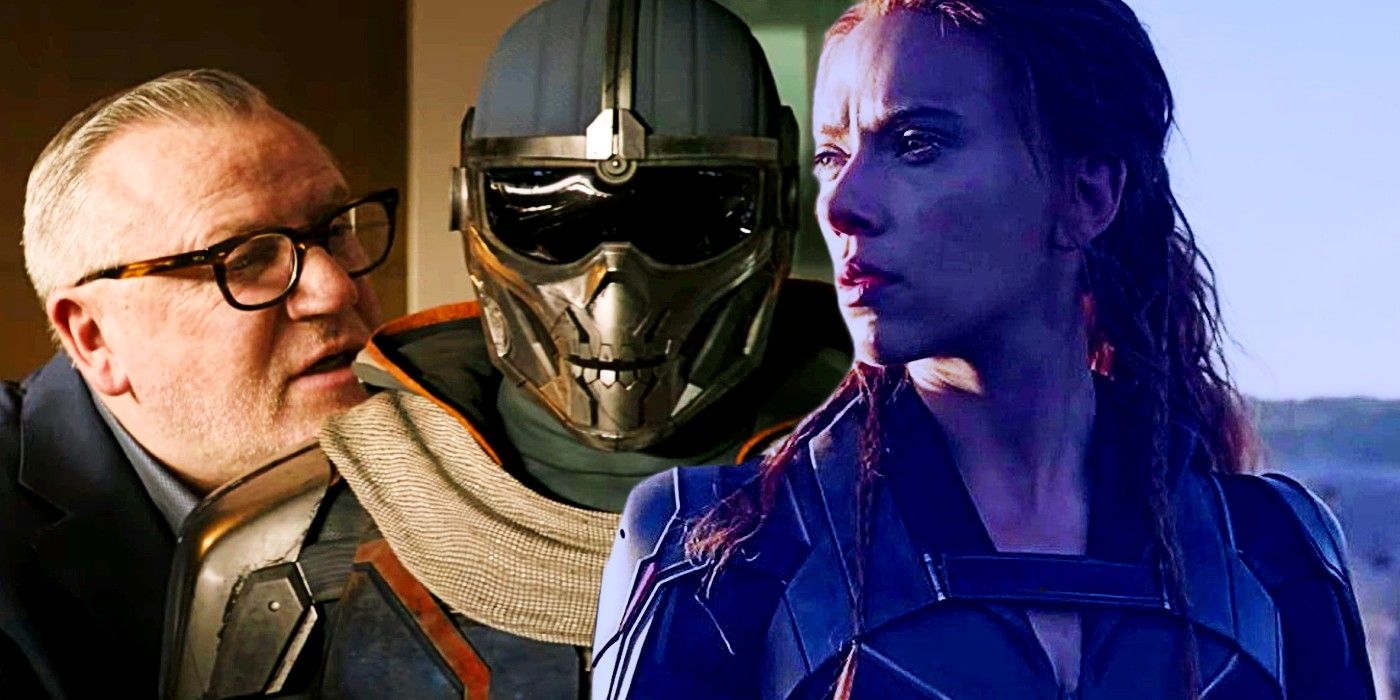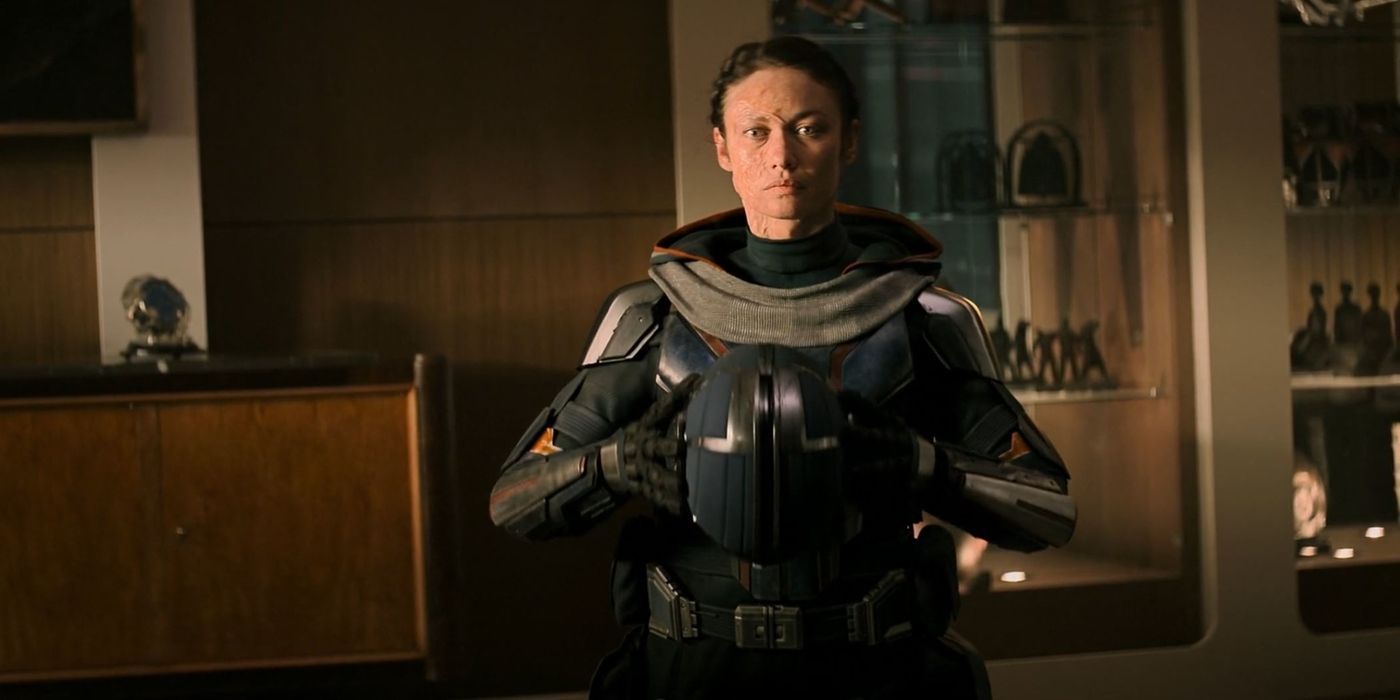Here is why Taskmaster (Olga Kurylenko) forgives Natasha (Scarlett Johansson) in Disney's Black Widow. The masked and armored villain is revealed to be Antonia, the daughter of General Dreykov (Ray Winstone), who was in the building that Natasha blew up in an attempt to kill the Russian leader of the Red Room. Unbeknownst to Natasha, both father and daughter survive the assassination attempt, but Antonia is left severely injured such that Dreykov has to insert technology into her head.
The final fight scene of Black Widow sees Taskmaster dueling with Natasha as the two plummet towards the Earth amongst the ruins of the destroyed Red Room. When they reach the ground, Natasha fights defensively, disarming Taskmaster, but trying to end the struggle. The brawl only ends when Natasha detonates a vial of the synthetic gas antidote, freeing Taskmaster from the chemical mind-control implanted by Dreykov. Taskmaster's will to fight immediately vanishes, and she accepts Natasha's apology.
Some viewers may find it odd, however, that Taskmaster is so quick to forgive Natasha. After all, as much as she worked to redeem herself, Natasha did make the decision that Antonia was acceptable collateral damage in the assassination attempt. It makes sense, though, that Antonia would forgive her - because not only does Natasha free her from her father's wicked influence, but she also fully understands Natasha's actions and why she made the decision that she did.
Taskmaster in Black Widow is as much a slave to Dreykov as any of the Widows. She has been forced throughout her entire adult life to hurt people in the name of the Red Room. Dreykov has so thoroughly manipulated her mind and body that she is basically his guard dog, and she finally understands that her father is the real enemy, the true cause of her suffering. She can also sympathize with Natasha - who underwent a similar experience - seemingly understanding why she tried to kill Dreykov, and perhaps may even agree that her own life would have been acceptable collateral damage to rid the world of such an evil.
Natasha is also the only reason Taskmaster is freed from her father's influence. Even after Dreykov's death, she pursues his goals by trying to kill his enemies. It's only when Natasha exposes her to the antidote that Black Widow's Taskmaster finally regains control of her own mind. Achieving redemption for knowingly trying to kill a child is certainly difficult, but Natasha does so when she rescues that same person from a lifetime of violent enslavement.
It's understandable that Taskmaster is able to forgive Natasha for her crimes because Natasha genuinely earns absolution by doing what was right for all the victims of the Red Room. The drama fits perfectly into the guilt-ridden Black Widow of Avengers, but the resolution feels satisfying and largely completes Natasha's arc before her tragic ending in Avengers: Endgame. The conflict in Black Widow fleshes out Natasha's character, and although many viewers are still upset about her death, the film helps to lessen the blow.


